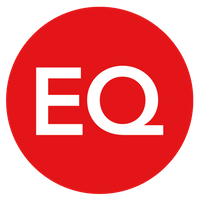4 ways EAPs can help combat the cost-of-living crisis
Nine in 10 of us are feeling the pinch due to higher living costs, according to the Office for National Statistics. And with household incomes falling and the July rate of inflation hitting a 40-year high, worse is yet to come.
Bank of England forecasts indicate that post-tax household income will drop 1.5% this year and 2.25% next year, before rebounding 0.75% in 2024. So, with at least another 18 months or so of financial hardship on the cards, employers keen to minimise productivity dips are looking for ways to provide much-needed emotional and practical support.
At EQ, we believe a comprehensive Employee Assistance Programme (EAP) is central to both assisting colleagues and to maximising awareness and engagement throughout this crisis.
Steven Randle, wellbeing lead at Innovate Healthcare, the occupational health and wellbeing service provider, agrees. “There’s plenty of anecdotal evidence that EAP providers are seeing a jump in calls due to the cost-of-living crisis.
“While many callers are seeking debt advice or guidance on eligibility for benefits, others are seeking psychological support due to relationship problems or mental health issues triggered by financial concerns,” he says.
Here are four ways you can use an EAP to help colleagues weather this economic storm:
1. By providing financial information, education and support
Available 24/7, an EAP is the perfect place to provide access to unbiased advice for those struggling with problems such as debt or fuel poverty.
“Financial education in the UK is a long way from where it should be and many of us simply don’t have the understanding of basic financial concepts, such as household budgeting or compound loan interest, that we need to manage the challenges to come,” says Randle.
With the Edelman Trust Barometer revealing that employers are among the most trusted sources of information in the UK today, ahead of both government and the media, motivated organisations can play an important role in bridging this gap.
Integrating your EAP into your reward hub allows you to join the dots across communications and the digital experience, connecting more colleagues with the services and products available.
2. By offering direct financial assistance
Some companies are responding to the cost-of-living crisis by offering one-off bonuses to help those in need. However, while undoubtedly welcomed by those affected, this is not an option for many employers. And according to Randle, it might not be the best approach anyway.
“One-off payments may postpone the problem, but all indications suggest the situation will not resolve itself overnight, with inflation predicted to get worse before it gets better,” he says. “In these circumstances, a more robust approach to financial resilience is what is needed.”
He does, however, advocate reviewing the benefits within the reward hub to ensure they meet employee needs. “For those under the greatest pressure, discount and voucher schemes for sectors such as retail and groceries may be among the most highly valued benefits,” Randle adds.
Again, engagement is key and a co-ordinated approach to communicating all the benefits on offer, supported by an EAP, will do wonders in that regard.
3. By providing speedy access to mental health services
Numerous studies and research papers have named financial stress as one of the main causes of poor mental health.
“It has been estimated that professionals experiencing financial stress are more than twice as likely to experience thoughts of suicide or self-harm than those reporting financial security,” Randle says.
Offering access to mental health support via an EAP is one of the best ways to ensure those affected can get the help they need – especially with the nation’s mental health services under greater pressure than ever before.
“Waiting times for talking therapy are often several months at the moment,” Randle adds. “In this climate, it’s vital to find ways of getting support to employees quickly to minimise the impact of financial stress on mental health.”
4. By helping employees to protect their physical health
With gas and electricity price hikes one of the main causes of the current crisis, an increasing proportion of the workforce may face fuel poverty and having to choose to heat or eat this winter.
“This coupled with the ongoing resource crisis in the NHS means there is a likelihood of an increase in sickness absence due to physical ill-health,” Randle says.
Providing healthcare-related benefits and Occupational Health support via an EAP will therefore also be crucial to supporting your workforce – especially during the cold winter months.
Supplied by REBA Associate Member, Equiniti
Hi we are EQ; some may know us as Equiniti! We provide specialist reward, benefits and payroll solutions.








